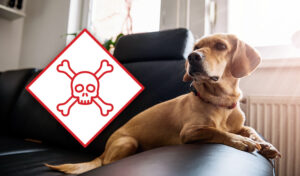What You Need To Know About Pet Poisons
 No pet owner wants to hurt their furry friend, but sometimes it is inevitable. Accidental poisonings can be prevented with simple switches in your home. One of the easiest ways to prevent an accidental poisoning is to watch what you plant in and around your house. While plants provide clean air for you home, they can also be really dangerous for pets based on what types of plants they are. Plants that aren’t toxic to humans like the hibiscus, those in the Easter lily family, mistletoe, and Dieffenbachia can cause medical problems in pets. Issues such as renal failure, irregular heartbeats, cardiac shock, or even death. Other examples of toxic plants include azalea, oleander, castor bean, sago palm, rhododendron, and Japanese yew. If you have these plants and cannot stand to give them up, put them up high in an unreachable location where your animal cannot chew or dig them up
No pet owner wants to hurt their furry friend, but sometimes it is inevitable. Accidental poisonings can be prevented with simple switches in your home. One of the easiest ways to prevent an accidental poisoning is to watch what you plant in and around your house. While plants provide clean air for you home, they can also be really dangerous for pets based on what types of plants they are. Plants that aren’t toxic to humans like the hibiscus, those in the Easter lily family, mistletoe, and Dieffenbachia can cause medical problems in pets. Issues such as renal failure, irregular heartbeats, cardiac shock, or even death. Other examples of toxic plants include azalea, oleander, castor bean, sago palm, rhododendron, and Japanese yew. If you have these plants and cannot stand to give them up, put them up high in an unreachable location where your animal cannot chew or dig them up
Your cat may love to snack on some grass outside, but this grass can be loaded up with deadly fertilizers and pesticides. Instead, you could make an indoor mini lawn for your cat. Mini lawns provide a safe, edible source of greenery. Special feline gardens are available commercially or you can start your own kitty garden using a bowl, soil, and grass seed. You could also grow catnip for you cat, but make sure to monitor how much your cat chews. While catnip is not generally toxic for cats, too much of the plant can overstimulate your cat’s central nervous system and cause a cat to injure themselves.
If you find that your pet was chewing on a plant, immediately remove the plant from their mouth and rinse their mouth gently with water. Identify which plant your pet was eating and call the poison center or your veterinarian. Be sure to watch for excessive or foamy salivation and changes in the skin around the mouth, eyes, or paws.
Another common cause of accidental poisonings is giving your pet something intended for a human. This could include people food, chemicals, or even medications. People often make the mistake of thinking that people food is ok for pets. Sometimes it is and sometimes it is not. Be sure to avoid milk, bones, chocolate, onions, rich and fatty foods, grapes, raisins, coffee, nicotine, and alcoholic beverages.
Like a child, one should poison-proof their house. Be sure to keep the cleaning products in a high, closed cabinet. There should be nothing below counter level because liquid drain cleaners, as well as tub and tile cleaners, can be lethal. Be sure to take precautions in the garage as well. Insecticides and auto care liquids need to be store high off of the ground to keep your pets from getting into them. Accidental chemical poisonings can even be made in giving medication. Avoid this by reading the label. For example, be sure to read the labels of flea control for your pets because the chemicals in dog flea agents are lethal for cats. Be sure to read the label directions and amounts carefully.
Some pet owners think that human medication will work for pets. This is incorrect. Never give your pet a human medication without consulting with your veterinarian. Even something as simple as aspirin can be lethal to your pet. Products such as acetaminophen and any aspirin product can cause stomach bleeding. Products like birth control and vitamins can also cause internal bleeding.
Cats tend to be attracted to unusual flavors. Be sure to keep things like the calamine lotion, diaper cream, sunblock, etc. away. These products contain an acid related to aspirin in them and will be toxic if ingested. Overall, small actions you take can help prevent the poisonings of your pets and keep them health. If you have any questions, feel free to contact Dr. Olsen at Olsen Veterinary Clinic at 618-656-5868.
